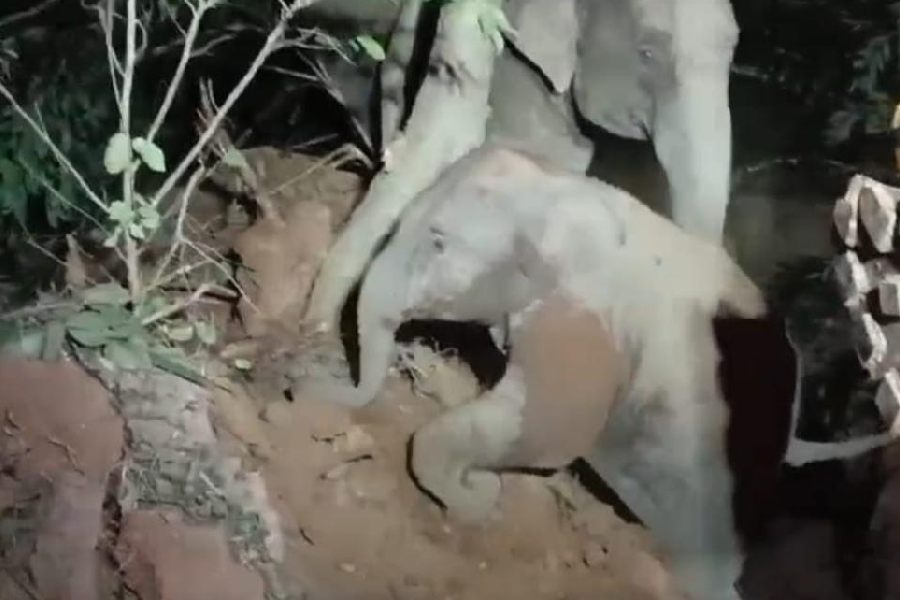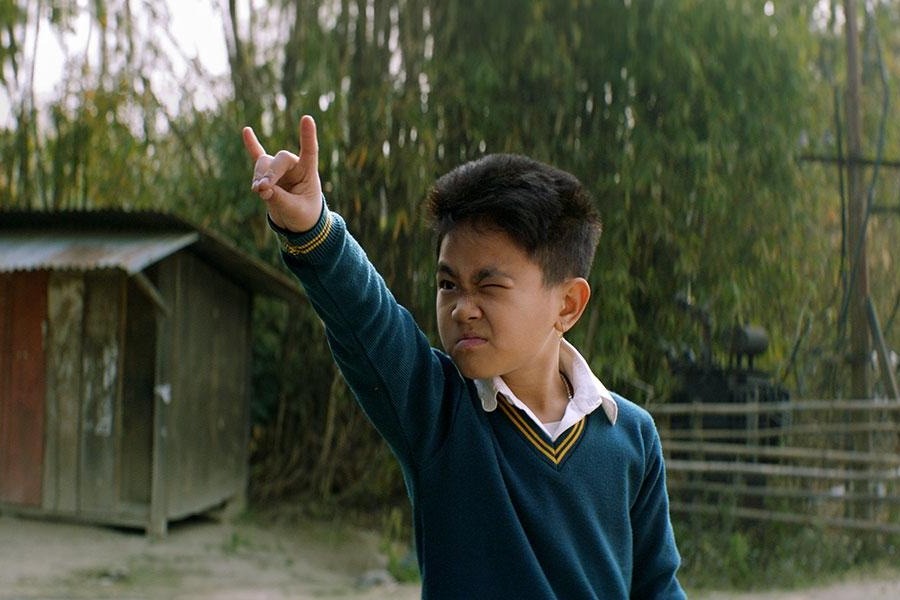Trust a mother’s instinct. A mother elephant, whose two-year-old calf fell into a shallow well in a potato field in West Midnapore’s Lalgarh on Monday night, surprised foresters with her four-hour-long patience and cooperation during the rescue operation.
“Usually, mother elephants become violent when their calves are in danger. But this mother elephant behaved differently. She stood calmly by the well throughout the operation and did not try to attack the earthmover we used to rescue the baby elephant,” said Shivanand Ram, the divisional forest officer of the Midnapore division.
Foresters said a herd of seven elephants, including the two-year-old calf, were near Pirrakuli village in the Lalgarh forest range of West Midnapore, foraging for potatoes in the field when the calf fell into the well.
“Around 70 elephants are roaming near our village. Late on Monday evening, we heard the trumpeting of at least four elephants in the middle of a potato field. We immediately informed the foresters. After they arrived around 10.30pm, we learnt that a baby elephant had fallen into a shallow well used to irrigate the field,” said villager Harashankar Mahato.
A senior forester said that as soon as they got the news, they made arrangements to rescue the calf at midnight. They brought in an earthmover and involved dozens of foresters to ensure the calf was rescued and returned to its herd unharmed.
They weren’t prepared for what awaited them.
Usually, foresters involve a hula party (those who drive away elephants) in such cases to chase away the mother elephant or other members of the herd from the area before attempting to rescue the calf.
“In this case, two or three elephants accompanying the mother left. But the mother elephant did not move a single inch from the well where her baby was trapped,” said a senior forester in West Midnapore.
A forester said he was concerned whether the mother elephant would attack them if they tried to approach the calf. Recalling an event in November 2023, when a mother elephant turned violent and killed two persons after her calf drowned while crossing a river in Jhargram’s Nayagram, he said mother elephants did get aggressive.
“But here, the mother elephant did not show any sign of aggression,” he said. “We began our rescue operation while she stayed where she was. It was unprecedented. She kept her cool even at the sound of her baby’s screams, which is unusual.”
The rescue operation began around 11pm on Monday and ended at 2.30am on Tuesday. All the while, the mother elephant kept waiting.
“We can’t forget her cooperation. She silently observed the entire operation without disturbing any of us,” said a forester.
He said that as the baby elephant calf was brought out of the well with the help of the earthmover, the mother stepped forward gently and patted it with her trunk before leaving the area. The forest department recorded a video of the operation, which clearly showed how the mother elephant remained calm while the baby elephant was dragged out of the well.
A researcher working on human-elephant conflict in south Bengal claimed the mother elephant or any member of her herd might have experienced humans rescuing trapped elephants in the past, which is why she did not become angry.
“We call it synurbization when wild animals adapt to living in human landscapes and learn new behaviour. I believe the mother was calm because either she or a member of her herd had previously experienced humans rescuing their loved ones in this way,” said Nilanjana Das Chatterjee, head of the geography department at Vidyasagar University.










